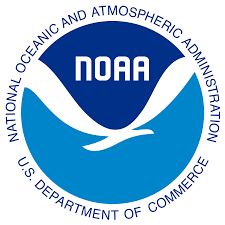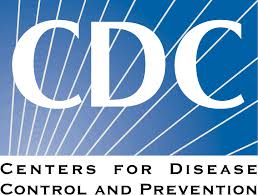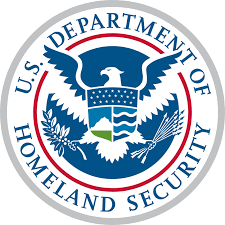Wildfire Publications
This page contains a number of Natural Hazards Center-supported publications, which demonstrate lessons learned concerning protective actions, knowledge exchange, and evacuation decision making, among many other relevant topics. Many of the publications below also include recommendations to reduce future harm. We hope the approaches and findings from this prior work can be used to inform the research response and recovery from the 2025 Southern California Wildfires and other events unfolding nationally and globally. Please visit our Center News Story page for additional wildfire resources.

Quick Response Research Award Program
Since 1986, the Natural Hazards Center has administered the Quick Response Research Award Program. This program, which is made possible with funding from the National Science Foundation, encourages the ethical collection of perishable data in the aftermath of disaster. Funding support allows researchers to document disasters before memories fade and physical evidence is erased. The following 35 Quick Response Research Reports focus on wildfire research.
QR372 | Wildfire Smoke in Northern California: Family Risk Perceptions and Mental Health Impacts (2025)
Kathleen Lynch, Alexis Merdjanoff, and David Abramson
QR363 | Renter Experiences After Colorado’s Marshall Fire (2023)
Katie Dickinson, Andrew Rumbach, Elizabeth Albright, and Deserai Crow
Additional Quick Response Fire Reports
QR361 | Land Use Adaptations to Wildfire in Unincorporated Communities in Colorado (2023)
Divya Chandrasekhar, Donovan Finn, Santina Contreras, and Tasnim Tarannum Isaba
QR351 | Following the Path to Policy Change:
Oregon 2020 Wildfires as a Focusing Event (2022)
Leanne Giordono
QR291 | Close But No Cigar: The Influence of a Near-Miss Wildfire on Risk Perception and Mitigation (2019)
Jordan W. Smith and Lauren Nicole Dupéy
QR274 | Hurricane Irma: Inmate Workers and Inmate All-Hazard Firefighters in Disasters (2018)
Carlee Purdum
QR236 | Spatial Patterns of Post-Wildfire Neighborhood Recovery: A Case Study From the Waldo Canyon Fire (Colorado Spring, Colorado, 2012) (2013)
Jacqueline Curtis, Andrew Curtis, Andrea Szell, Adam Cinderich
QR235 | Animal Protection in Wildfires (2013)
Brenda D. Phillips, Dana M. Greene, Tamara Gull, Dave Neal, Tom Wikle, Alyssa Forsyth, Michael C. Fleming, Elizabeth Drain, Connie Yearwood, Brittany Koethner, Breanna Shunn, Audra Blasi, Debra Wagner, Cindy Webster, and Dean Findley
QR204 | Public Perception of Wildfire Smoke Hazard (2008)
Susan Macey
QR185 | Strengthening Resilience of Rural Communities to Wildfire in the Pacific Northwest (2006)
Kathy Lynn and Arleen Hill
QR173 | The 2003 Southern California Wildfires: Constructing Their Cause(s) (2005)
Richard Stuart Olson and Vincent T. Gawronski
QR167 | Colorado Wildfires 2002 (2004)
Charles Benight, Eve Gruntfest, and Kelly Sparks
QR151 | The Fires of 2000: Community Response and Recovery in the Bitter Root Valley, Western Montana (2002)
Sarah J. Halvorson
QR132 | Effects of Wildfire on Adolescents in Volusia County Florida (2000)
Audra Langley and Russell T. Jonesrt
QR96 | Buffalo Creek Fire and Flood Report (1997)
Charles C. Benight and Michelle L. Harper
QR73 | Residential Loss and Displacement Among Survivors of the 1996 Altadena Fire (1994)
Norma S. Gordon, Carl A. Maida, Norman L. Farberow, and Linda Fidell
QR72 | Immediate Emotional Responses to the Southern California Firestorms (1994)
E. Alison Holman and Roxane Cohen Silver
QR64 | The Pothole Lake Fire: An Analysis of Emotion in a successful Emergency Response (1993)
Kathleen Carley, Ruth Cohn, Laurie Waisel, and William A. Wallace
QR51 | The Immediate Community Response To Disaster: The East Bay Hills Fire (1992)
Norma S. Gordon and Carl A. Maida
QR46 | Psychosocial Correlates Of Fire Disaster Among Children And Adolescents (1991)
Russell T. Jones, David P . Ribbe, and Phillippe Cunningham
QR8 | Psychosocial Impact of Disaster: The Baldwin Hills Fire (1987)
Norma S. Gordon, Carl A. Maida, Alan Steinberg, and Gail Gordon
Special Call for Research: FEMA Region 8
The Natural Hazards Center—in partnership with the Federal Emergency Mangement Agency (FEMA) and the National Science Foundation—funded a special call to expand understanding of hazards and disasters experienced in FEMA Region 8. These reports also offer actionable guidance for emergency managers.
This call supported 9 FEMA Region 8 Research Reports, including one study focused on wildfires.
QR366 | Preparing Mobile Home Park Residents for Wildfire in Lake County, Colorado (2024)
Julia B. Goolsby, Hannah Brenkert-Smith, Colleen Donovan, Stephen Boyle, Carolyn Wagner, Patricia Champ, Josh Kuehn, and Suzanne Wittenbrink
Special Call for Research: 2021 Boulder County Fires
The Natural Hazards Center—with funding from the National Science Foundation—supported five research teams to study the 2021 Boulder County Fires. These proposals were awarded as part of a special call for Quick Response Research.
QR353 | Water Quality in Coal Creek Following the 2021 Marshall Fire (2023)
Lauren Magliozzi, Cresten Mansfeldt, Diane McKnight, Julie A. Korak
QR350 | The 2021 Marshall Fire: Rapid Integrated Damage Assessment (2022)
Karl Kim, Lily Bui, Eric Yamashita, Mike Vorce, Lisa Webster, and Dave Marasco
Additional 2021 Boulder County Fires Reports
QR349 | Survey of Evacuation Behavior in the 2021 Marshall Fire, Colorado (2022)
Ana Forrister, Xiang Yan, Zehui Yin, Xilei Zhao, Tom Cova, Ruggiero Lovreglio, Daniel Nilsson, and Erica Kuligowski
QR348 | Social Capital, Mobility, and Evacuation Destinations During the Marshall Fire (2022)
Daniel Aldrich, Courtney Page-Tan, Tim Fraser, and Takahiro Yabe
QR347 | Tracking the Effects of the Marshall Fire on Pets and People (2022)
Leslie Irvine and Casara Andre
Special Calls for Research: 2018 and 2019 California Wildfires
The Natural Hazards Center—with funding from the National Science Foundation—administered a special call in 2018 and a special call in 2019 for researchers to collect perishable data to learn from the California wildfires. The reports emphasize lessons learned regarding wildfire mitigation, preparedness, response, and recovery.
QR328 | A First Step Towards Longitudinal Study on Homeowners’ Proactive Actions for Managing Wildfire Risks (2021)
Ji Yun Lee and Yue Li
QR326 | Modeling Evacuation Behavior in the 2019 Kincade Fire, Sonoma County, California (2021)
Xilei Zhao, Ningzhe Xu, Kaitai Yang, Erica Kuligowski, Ruggiero Lovreglio, Daniel Nilsson, Nancy A. Brown
Additional 2018 and 2019 California Wildfire Reports
QR302 | Post-Wildfire Damage: The 2018 Camp Fire in Paradise, California (2021)
Erica Fischer, Hussam Mahmoud, Sara Hamideh, and Stefanie Schulze
QR300 | Collective Action in Communities Exposed to Recurring Hazards: The Camp Fire, Butte County, California, November 8, 2018 (2019)
Louise Comfort, Kenichi Soga, Mark Stacey, Millard McElwee, Chiara Ecosse, Jillian Dressler, and Bingyu Zhao
QR299 | Knowledge Exchange and Disaster Recovery After Frequent Wildfires in Northern California: Exploring the Experiences of Organizations Responding to the 2018 Camp Fire (2020)
Catrin Edgeley
QR298 | Resilience Under Fire: Protective Action, Attitudes, and Behaviors in the 2018 Woolsey Fire (2019)
Steven J. Jensen, Shirley Feldmann-Jensen, and Brent Woodworth

Weather Ready Research Award Program
The Natural Hazards Center—with support from the National Science Foundation and the National Oceanic and Atmospheric Administration—established the Weather Ready Research Award Program to promote knowledge and build a diverse cadre of weather ready researchers. Please see below for the first report published under a call for Wildfire Ready Research through this program. Additional Wildfire Ready reports will be available soon.
Call 1: Weather Ready Research
WR6 | The Role of 360-Degree Videos in Wildfire Preparedness (2022)
Na Yu and Lucy Atkinson
WR7 | Burned Area Emergency Response Teams: Interactions and Opportunities During Southwestern Monsoon Seasons (2022)
Catrin Edgeley, Noah Haarmann, and Anna Jaramillo-Scarborough
Call 4: Wildfire Ready Quick Response Research and Data Publication
WR12 | Transit Agencies and Wildfire Evacuation: Case Study of the 2021 Caldor Fire (2024)
Tara Goddard
WR13 | Community-Based Organization Cultural Brokering: A Case Study of the Almeda Fire (2025)
Christine da Rosa
Additional Weather Ready Wildfire Reports

Public Health Disaster Research Award Program
The Natural Hazards Center—with supplemental funding from the Centers for Disease Control and Prevention—established the Public Health Disaster Research Award Program to support public health, social science, and interdisciplinary research that can improve public health interventions. The report below focuses on children's recovery following the 2020 Slater Fire.
PH41 | How Rural Contexts Shape Disaster Recovery: Children and Families After the 2020 Slater Fire (2024)
Rita V. Burke, Santina Contreras, Amber Anderson, Abigail Yeager, and Jasmine Borgatti

Mitigation Matters Research Award Program
The Natural Hazards Center—with supplemental funding from the Federal Emergency Management Agency—established the Mitigation Matters Research Award Program to provide funding for researchers focused on natural hazard mitigation and other forms of risk reduction. This program is designed to support mitigation research that reduces loss of life and property by lessening the impact of disasters. Please see below for three Mitigation Matters reports focusing on wildfire mitigation.
MM22 | Colorado’s Marshall Fire
Recovery, Mitigation, and Resilience Through a Social Equity Lens (2025)
Katherine Dickinson, Hannah Walters, Deserai Crow, Elizabeth Albright, Andrew Rumbach, Annie Rosenow, Molly Kadota, Nathan Jeschke, Amy Javernick-Will, and Noah Gershon
View the Research Brief
MM19 | Fire-Resistant and Energy-Efficient Fungi-Based Building Materials: Towards Hazard-Mitigating Housing (2024) Xijin Zhang
View the Research Brief
Additional Wildfire Mitigation Matters Reports
MM13 | From the Ashes: Mitigation Policy After Wildfire in California (2022) Ronald Schumann, Miranda H. Mockrin, Sherri Brokopp Binder, and Alex Greer View the Research Brief
MM4 | Burning Down the House: Flame Imagery, Risk Communication, and Household Behavior (2022) Hilary Byerly View the Research Brief
Research Counts
The Research Counts series serves as a platform for hazards and disaster scholars to provide insights about research findings and the enduring lessons of disaster, as well as to raise new questions that are worthy of exploration. The pieces in the series are brief, drawn from a variety of disciplines, and intended for a broad audience. The three articles below focus on wildfire related topics and lessons learned.
Juneja Lakhina, S., Quinn-Davidson, L., Smith, B., and Godwin, D. (2022). Care, Equity, and Justice: Reimagining the Forestry and Fire Workforce. Research Counts 2(16).
Charnley, Susan. (2020). Less Fuel for the Fire: Wildfire Mitigation Through Hazardous Fuels Reduction. Research Counts 3(4).
Stough, Laura M. and Elizabeth McAdams Ducy. 2020. Evacuating Under Fire: Children with Special Healthcare Needs in Disaster. Research Counts, Special Collection on Mass Sheltering and Disasters. 4(SC17).
Director's Corner
The Director’s Corner is a space for Center Director Lori Peek to communicate more regularly with members of the hazards and disaster community.
In this edition, Peek reflects on a new perspective on disaster preparedness—that of an evacuee during the 2020 Calwood Fire in Boulder, CO.